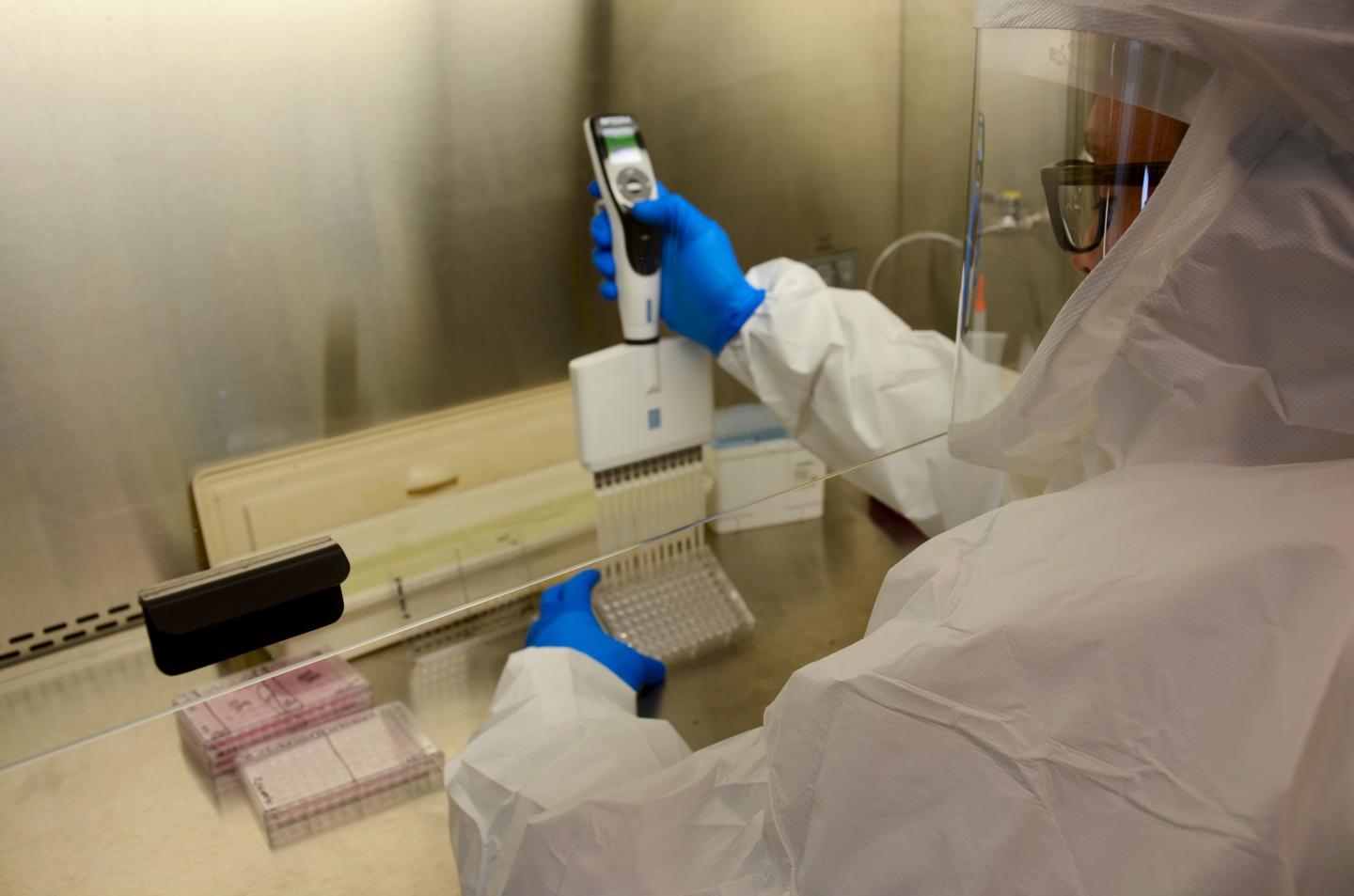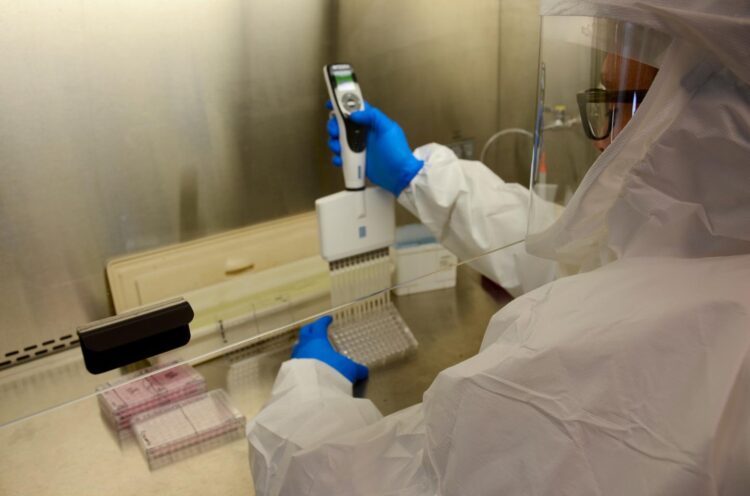Scientists are hopeful that a new drug — called EIDD-2801 — could change the way doctors treat COVID-19

Credit: Photo Courtesy of Mary Lide Parker
Scientists are hopeful that a new drug — called EIDD-2801 — could change the way doctors treat COVID-19. The drug shows promise in reducing lung damage, has finished testing in mice and will soon move to human clinical trials.
As of April 3, the novel coronavirus SARS-CoV-2 had infected more than 1 million people with COVID-19 and caused more than 58,000 deaths in a worldwide pandemic. Currently, no antiviral drugs have been approved to treat SARS-CoV-2 or any of the other coronaviruses that cause human disease.
Researchers at the UNC-Chapel Hill Gillings School of Global Public Health are playing a key role in the development and testing of EIDD-2801. Virologists in the lab of William R. Kenan Jr. Distinguished Professor of epidemiology Ralph Baric, are working with colleagues in the lab of Mark Denison, Edward Claiborne Stahlman Professor of pediatrics at Vanderbilt University Medical Center (VUMC), and with George Painter, chief executive officer of the nonprofit DRIVE (Drug Innovation Ventures at Emory) and director of the Emory Institute for Drug Development (EIDD), where EIDD-2801 was discovered.
The results of the team’s most recent study were published online April 6 by the journal Science Translational Medicine. The paper includes data from cultured human lung cells infected with SARS-CoV-2, as well as mice infected with the related coronaviruses SARS-CoV and MERS-CoV.
The study found that, when used as a prophylactic, EIDD-2801 can prevent severe lung injury in infected mice. EIDD-2801 is an orally available form of the antiviral compound EIDD-1931; it can be taken as a pill and can be properly absorbed to travel to the lungs.
When given as a treatment 12 or 24 hours after infection has begun, EIDD-2801 can reduce the degree of lung damage and weight loss in mice. This window of opportunity is expected to be longer in humans, because the period between coronavirus disease onset and death is generally extended in humans compared to mice.
“This new drug not only has high potential for treating COVID-19 patients, but also appears effective for the treatment of other serious coronavirus infections,” said senior author Baric.
Compared with other potential COVID-19 treatments that must be administered intravenously, EIDD-2801 can be delivered by mouth as a pill. In addition to ease of treatment, this offers a potential advantage for treating less-ill patients or for prophylaxis — for example, in a nursing home where many people have been exposed but are not yet sick.
“We are amazed at the ability of EIDD-1931 and -2801 to inhibit all tested coronaviruses and the potential for oral treatment of COVID-19. This work shows the importance of ongoing National Institutes of Health (NIH) support for collaborative research to develop antivirals for all pandemic viruses, not just coronaviruses” said Andrea Pruijssers, the lead antiviral scientist in the Denison Lab at VUMC.
Denison was senior author of a December 2019 study that first reported that EIDD-1931 blocked the replication of a broad spectrum of coronaviruses.
These interinstitutional collaborators, supported by an NIH grant through the University of Alabama at Birmingham, also performed the preclinical development of remdesivir, another antiviral drug currently in clinical trials of patients with COVID-19. In the new Science Translational Medicine paper, Maria Agostini, a postdoctoral fellow in the Denison lab, demonstrated that viruses that show resistance to remdesivir experience higher inhibition from EIDD-1931.
“Viruses that carry remdesivir resistance mutations are actually more susceptible to EIDD-1931 and vice versa, suggesting that the two drugs could be combined for greater efficacy and to prevent the emergence of resistance,” said Painter.
Clinical studies of EIDD-2801 in humans are expected to begin later this spring. If they are successful, the drug could not only be used to limit the spread of SARS-CoV-2, but also could control future outbreaks of other emerging coronaviruses.
“With three novel human coronaviruses emerging in the past 20 years, it is likely that we will continue to see more,” said first author Timothy Sheahan, a Gillings assistant professor of epidemiology and a collaborator in the Baric Lab. “EIDD-2801 holds promise to not only treat COVID-19 patients today, but to treat new coronaviruses that may emerge in the future.”
###
Media Contact
Jeni Cook
[email protected]





